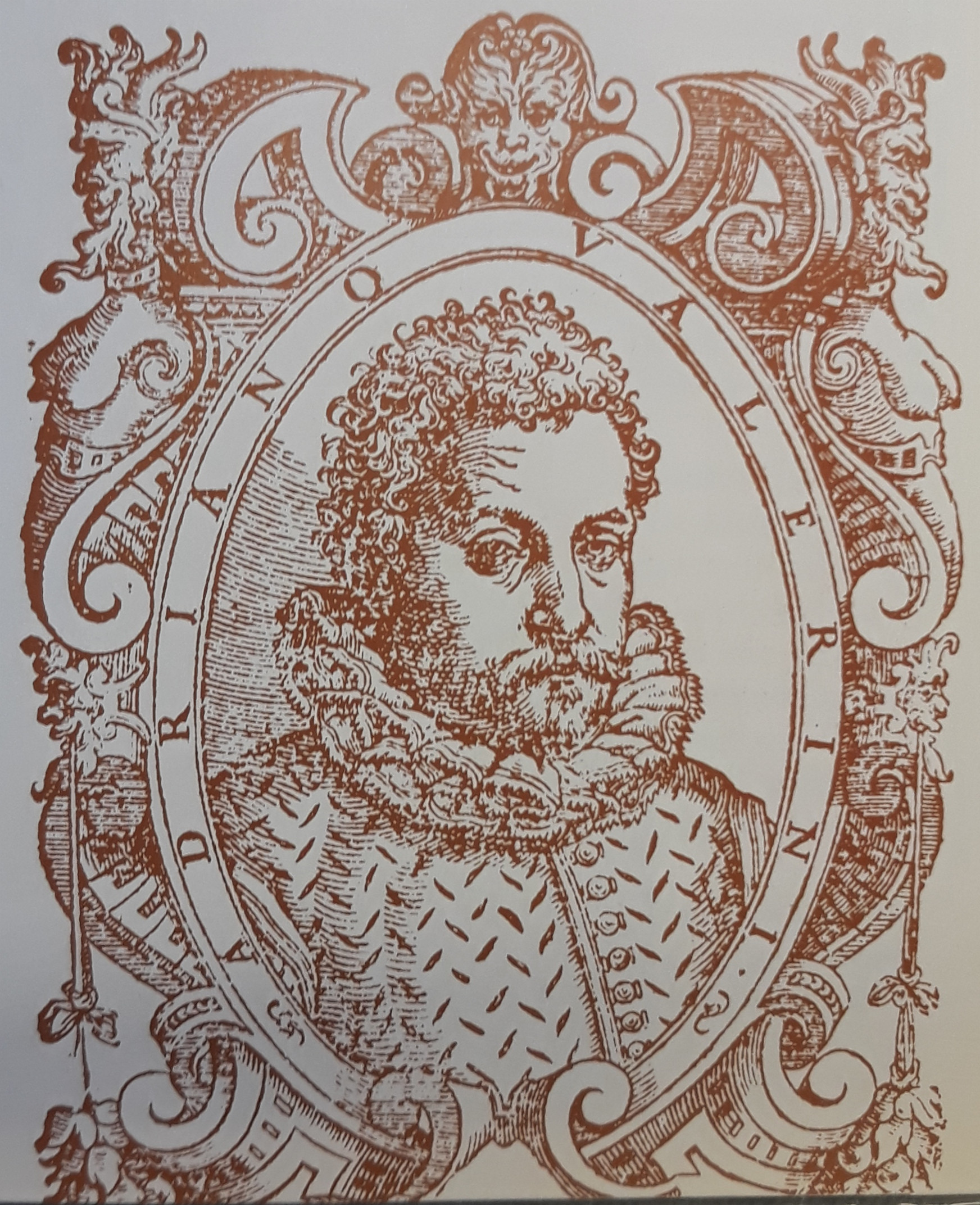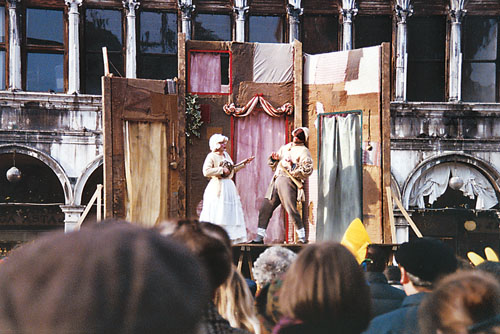|
Adriano Valerini
Adriano Valerini (active circa 1560-died 1590s) was an Italian actor of Commedia dell'arte, active in Northern Italy. He was born in Verona, and could read Latin and Greek. He was the head of a company of actors. In Milan, he fell under the censorship of Charles Borromeo. He has published a tragic play ''l'Afrodite'', nearly one hundred madrigals, a funeral oration for the fellow comic and possible mistress Vincenza Armani Vincenza Armani (c. 1530 in Venice – 11 September 1569), was an Italian actress, singer, poet, musician, lace maker and sculptor. She was one of the most famous Italian actresses of the period and known as the 'Divine Vincenza Armani'. She ..., and the play ''Belleze di Verona''. He was the father of Diana Ponti. References * {{DEFAULTSORT:Valerini, Adriano Actors from Verona Italian male stage actors Commedia dell'arte 16th-century Italian male actors ... [...More Info...] [...Related Items...] OR: [Wikipedia] [Google] [Baidu] |
Commedia Dell'arte
(; ; ) was an early form of professional theatre, originating from Italian theatre, that was popular throughout Europe between the 16th and 18th centuries. It was formerly called Italian comedy in English and is also known as , , and . Characterized by masked "types", was responsible for the rise of actresses such as Isabella Andreini and improvised performances based on sketches or scenarios. A , such as ''The Tooth Puller'', is both scripted and improvised. Characters' entrances and exits are scripted. A special characteristic of is the , a joke or "something foolish or witty", usually well known to the performers and to some extent a scripted routine. Another characteristic of is pantomime, which is mostly used by the character Arlecchino, now better known as Harlequin. The characters of the usually represent fixed social types and stock characters, such as foolish old men, devious servants, or military officers full of false bravado. The characters are exaggerated " ... [...More Info...] [...Related Items...] OR: [Wikipedia] [Google] [Baidu] |
Verona
Verona ( , ; vec, Verona or ) is a city on the Adige River in Veneto, Northern Italy, Italy, with 258,031 inhabitants. It is one of the seven provincial capitals of the region. It is the largest city Comune, municipality in the region and the second largest in northeastern Italy. The metropolitan area of Verona covers an area of and has a population of 714,310 inhabitants. It is one of the main tourist destinations in northern Italy because of its artistic heritage and several annual fairs and shows as well as the Opera, opera season in the Verona Arena, Arena, an ancient Ancient Rome, Roman Amphitheatre, amphitheater. Between the 13th and 14th century the city was ruled by the Scaliger, della Scala Family. Under the rule of the family, in particular of Cangrande I della Scala, the city experienced great prosperity, becoming rich and powerful and being surrounded by new walls. The Della Scala era is survived in numerous monuments around Verona. Two of William Shakespeare's ... [...More Info...] [...Related Items...] OR: [Wikipedia] [Google] [Baidu] |
Charles Borromeo
Charles Borromeo ( it, Carlo Borromeo; la, Carolus Borromeus; 2 October 1538 – 3 November 1584) was the Archbishop of Milan from 1564 to 1584 and a cardinal of the Catholic Church. He was a leading figure of the Counter-Reformation combat against the Protestant Reformation together with Ignatius of Loyola and Philip Neri. In that role he was responsible for significant reforms in the Catholic Church, including the founding of seminaries for the education of priests. He is honoured as a saint by the Catholic Church, with a feast day on 4 November. Early life Borromeo was a descendant of nobility; the Borromeo family was one of the most ancient and wealthy in Lombardy, made famous by several notable men, both in the church and state. The family coat of arms included the Borromean rings, which are sometimes taken to symbolize the Holy Trinity. Borromeo's father Gilbert was Count of Arona, Piedmont, Arona. His mother Margaret was a member of the Milan branch of the House of Medi ... [...More Info...] [...Related Items...] OR: [Wikipedia] [Google] [Baidu] |
Madrigal
A madrigal is a form of secular vocal music most typical of the Renaissance (15th–16th c.) and early Baroque (1600–1750) periods, although revisited by some later European composers. The polyphonic madrigal is unaccompanied, and the number of voices varies from two to eight, but usually features three to six voices, whilst the metre of the madrigal varies between two or three tercets, followed by one or two couplets. Unlike the verse-repeating strophic forms sung to the same music, most madrigals are through-composed, featuring different music for each stanza of lyrics, whereby the composer expresses the emotions contained in each line and in single words of the poem being sung. As written by Italianized Franco–Flemish composers in the 1520s, the madrigal partly originated from the three-to-four voice frottola (1470–1530); partly from composers' renewed interest in poetry written in vernacular Italian; partly from the stylistic influence of the French chanson; and from ... [...More Info...] [...Related Items...] OR: [Wikipedia] [Google] [Baidu] |
Vincenza Armani
Vincenza Armani (c. 1530 in Venice – 11 September 1569), was an Italian actress, singer, poet, musician, lace maker and sculptor. She was one of the most famous Italian actresses of the period and known as the 'Divine Vincenza Armani'. She and Barbara Flaminia were the two most known actresses of their time and described as great rivals. Being one of the two first well-documented actresses in Europe, which was the only country where actresses existed at the time, she belonged to the first actresses in modern Europe. Life Vincenza Armani was from Venice. She is first mentioned when she performed the part of a man in the theatre company of Zan Ganassa in Mantua in 1565. She later became the prima donna of the famous commedia dell'arte Gelosi Company of Flaminio Scala. In 1566, Barbara Flaminia is mentioned as her rival of fame, and in 1567, the two performed a famous competition scene in Mantua. The first Italian actress known by name was the actress Lucrezia Di Siena, who ... [...More Info...] [...Related Items...] OR: [Wikipedia] [Google] [Baidu] |
Diana Ponti
Diana Ponti, also known as Lavinia Ponti (d. circa 1615), was an Italian stage actress. She was the daughter of the actor Adriano Valerini. Diana Ponti was the managing actor-director (or ''capocomico'') of the company ''I Desiosi'', which was also called ''Diana Comica Dediosa'' after her. The exact years are not known but she is confirmed as such in 1585–1588 and would have retired as such prior to 1597, when Flaminio Scala Flaminio Scala (27 September 1552 – 9 December 1624), commonly known by his stage name, Flavio,Landolfi 1993. was an Italian stage actor of Commedia dell'Arte, scenario writer, playwright, director, producer, manager, agent, and editor. Consi ... is noted as manager. The position as manager of a company was not common in the 16th-century and she would have been a pioneer in Europe in this aspect. She enjoyed fame and popularity and was a well-noted actor of her day in contemporary Italy. She was also active as a poet. References * Pierre Louis Duchar ... [...More Info...] [...Related Items...] OR: [Wikipedia] [Google] [Baidu] |
Actors From Verona
An actor or actress is a person who portrays a character in a performance. The actor performs "in the flesh" in the traditional medium of the theatre or in modern media such as film, radio, and television. The analogous Greek term is (), literally "one who answers".''Hypokrites'' (related to our word for hypocrite) also means, less often, "to answer" the tragic chorus. See Weimann (1978, 2); see also Csapo and Slater, who offer translations of classical source material using the term ''hypocrisis'' ( acting) (1994, 257, 265–267). The actor's interpretation of a rolethe art of actingpertains to the role played, whether based on a real person or fictional character. This can also be considered an "actor's role," which was called this due to scrolls being used in the theaters. Interpretation occurs even when the actor is "playing themselves", as in some forms of experimental performance art. Formerly, in ancient Greece and the medieval world, and in England at the time of W ... [...More Info...] [...Related Items...] OR: [Wikipedia] [Google] [Baidu] |
Italian Male Stage Actors
Italian(s) may refer to: * Anything of, from, or related to the people of Italy over the centuries ** Italians, an ethnic group or simply a citizen of the Italian Republic or Italian Kingdom ** Italian language, a Romance language *** Regional Italian, regional variants of the Italian language ** Languages of Italy, languages and dialects spoken in Italy ** Italian culture, cultural features of Italy ** Italian cuisine, traditional foods ** Folklore of Italy, the folklore and urban legends of Italy ** Mythology of Italy, traditional religion and beliefs Other uses * Italian dressing, a vinaigrette-type salad dressing or marinade * Italian or Italian-A, alternative names for the Ping-Pong virus, an extinct computer virus See also * * * Italia (other) * Italic (other) * Italo (other) * The Italian (other) * Italian people (other) Italian people may refer to: * in terms of ethnicity: all ethnic Italians, in and outside of Italy * in ... [...More Info...] [...Related Items...] OR: [Wikipedia] [Google] [Baidu] |





